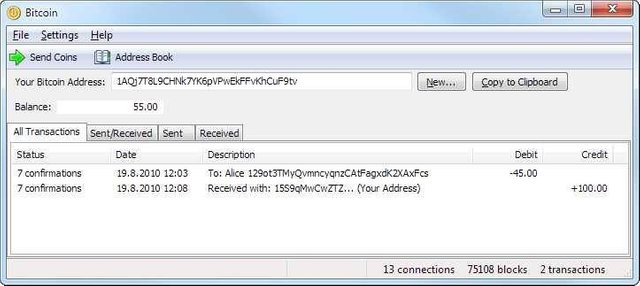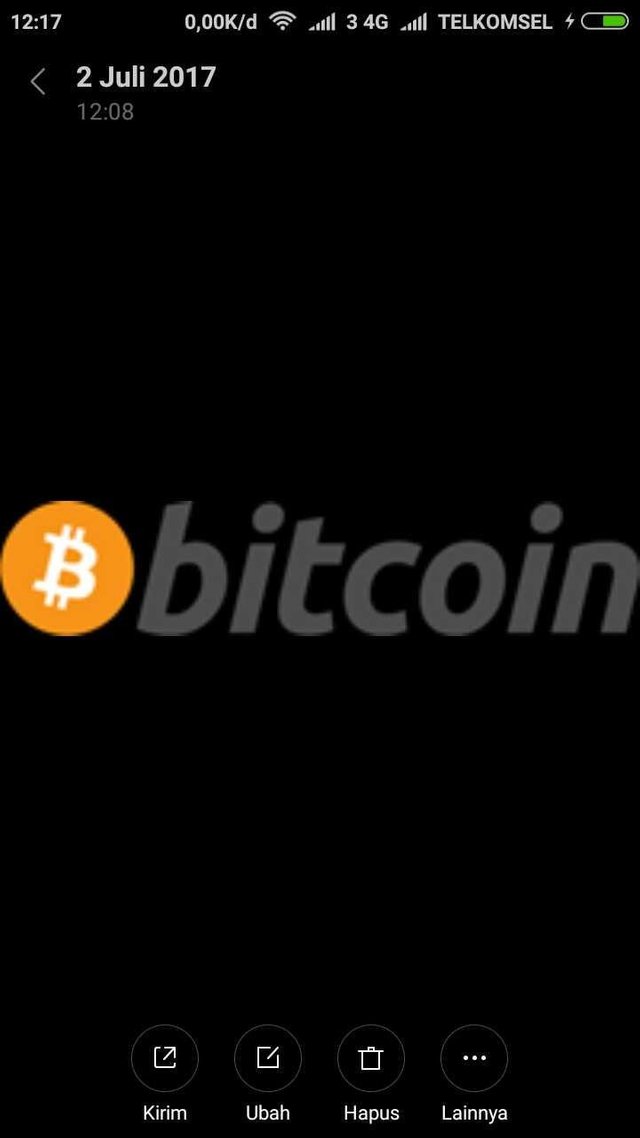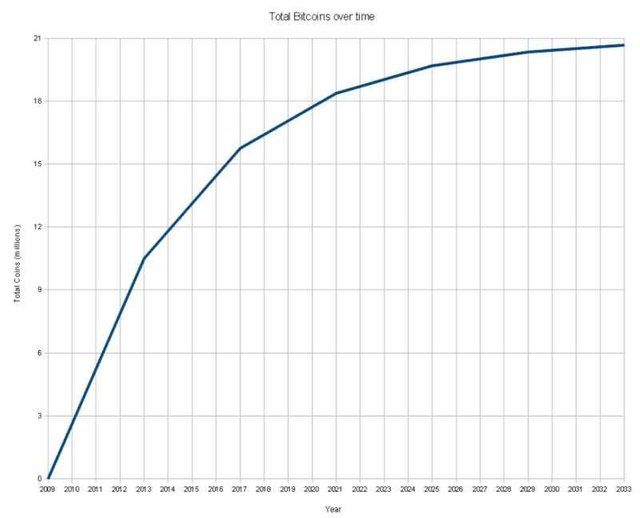Bitcoin - Get Closer With it
BITCOIN
Bitcoin is an electronic money made in 2009 by Satoshi Nakamoto. The name is also associated with the open source software that he designed, and also uses a peer-to-peer network without centralized storage or a single administrator where the US Treasury calls the bitcoins of a decentralized currency. Unlike most common currencies, bitcoin does not depend on trusting major publishers. Bitcoin uses a database that is distributed and spreads to the nodes of a P2P network to a transaction journal, and uses cryptography to provide basic security functions, such as ensuring that bitcoins can only be spent by people owning them, and never be done more From one time.
The design of Bitcoin allows for anonymous ownership and transfer of wealth. Bitcoin - bitcoin can be stored on a personal computer in a wallet file format or stored by a third party wallet service, and apart from all that bitcoin can be sent over the internet to anyone with a Bitcoin address. The peer-to-peer bitcoin topology and the lack of a single administration make it impossible for any governmental authority to manipulate the value of bitcoin - bitcoin or cause inflation by producing more bitcoin.
Bitcoin is one of the first implementations of the so-called cryptocurrency, first described by Wei Dai in 1998 in the cypherpunks mailing list.
Overview
Bitcoin relies on the amount of transfer between public accounts using public key cryptography. All transactions are open to the public and stored in a distributed database. To prevent multiple expenses, the network implements a distributed time server, using the idea of casualty proofing of work. The entire history of the transactions has been properly stored in the database and to reduce the size of the storage area, a Merkle tree is used.
Technical

Bitcoin software runs on Windows 7
Bitcoin is a peer-to-peer implentation of the b-money proposal by Wei Dai and Bitgold's proposal by Nick Szabo. The principle of the system in general has been described in 2008 by Satoshi Nakamoto.
Delivery
Someone who participates in a bitcoin network has a wallet that stores some keypair - keypair critiques. Public key - public key, or address - bitcoin address, which acts as the endpoint send or receive for all payments. The associated private key only allows payments only from the user itself. Addresses do not contain any information about the owner and are generally unknown.
Addresses in human readable format consist of random numbers and letters that are approximately 33 characters long, in the format 1rYK1YzEGa59pI314159KUF2Za4jAYYTd.
Bitcoin users can have multiple addresses, and the fact can generate new addresses without any limitations, as creating a new address is immediate, comparable to creating a new / private key pair, and requiring no connection to any nodes in the network. In creating single-purpose / single-use addresses - addresses can help the anonymity of the user.
Transactions
Bitcoin - bitcoin contains the current owner's public key (address). When user A sends a value to user B, A will release their ownership value by adding the public key (address) B to the coins and sign it with its own private key.
Then he will broadcast these bitcoins in a corresponding message, called a transaction, in a peer-to-peer network. The rest of the network nodes validate the criterion's signature and the number of transactions prior to receiving it.
Economy
*The economy of Bitcoin is still small compared to the long established economies and software is still in beta development stage. But goods and services, such as used cars and freelance software development contracts, are now tradable. Bitcoin - bitcoin is acceptable for both things, both virtual service and real goods. *
The Electronic Frontier Foundation and Singularity Institute received donations through bitcoin.
Currency exchangers exchange commonly used currencies (including American dollars, Russian rubles, and Japanese yen) to bitcoin through bitcoin exchange sites. Anyone can see chain-blocks And observing transactions in real time. A wide range of service facilities to observe is available.
Monetary Differences
Total supply of Bitcoin over time.
In contrast to conventional fiat spheres, bitcoin differs in that no supervision can control value due to its decentralized nature, the reduction in circulation can cause instability typically caused by central banks.
There is also limited inflation control that is implemented in Bitcoin software, but it can be predicted and recognized by all parties. Therefore inflation can not be manipulated from the central to influence the redistribution of values from the public.
Transfer
transfers are facilitated directly without the use of a financial processor among nodes. This type of transaction makes chargeback impossible. The Bitcoin client will broadcast transactions to the surrounding nodes that will spread payments to all networks. False or wrong transactions will be rejected by honest clients. Transactions are mostly free of charge, but a fee can usually be paid to another node to mempriotiskan transaction processing.
Over time, the total amount of bitcoin will increase towards 21 million. The circulation of money increases as a geometric series that takes place every four years; It is estimated that by 2013 half of the total circulation will be successfully generated, and by 2017, 3/4 of it will be completed. Along with the bleeding toward that value, bitcoin is likely to begin to deflate (the real value increase) value due to the shortage of new introductions. Although Bitcoin can be divided by eight digits behind the comma (giving 2.1 x 1015 units total), eliminating practical limitations may lead to adjustment of values toward deflationary environments. [8] Rather than relying on the newly created bitcoin incentives to record transactions into blocks, the nodes in this period are expected to rely on their ability to competitively collect transaction processing fees
Results
Possible scenario failures for Bitcoin include currency devaluation, decline in user base, or crackdown by governments to stop software operations. However, it may not be possible for "crypto-money like bitcoin." [24] It seems that the decentralization and anonymity contained in Bitcoin is a reaction to the United States government that memprosekusi virtual currency companies such as e-gold and Liberty Dollar.
In an Irish Times papers investigating Danny O'Brien's article reporting "When I show people about the Bitcoin economy, they ask: 'Is this legal?' They asked: 'Is this a scam?' I imagine that lawyers and economists are trying hard to answer those two questions, I suppose you will soon be adding members of parliament to that list. "
Legality of use
The legality of using Bitcoin is changing rapidly around the world, some countries such as Thailand banned Bitcoin, the German state gave legal status and some countries such as China restricted the use of bitcoin. On February 6, 2014, the Government of Indonesia stated that Bitcoin and other virtual currency are not valid currency or payment instruments in Indonesia. Indonesian people are encouraged to be careful of Bitcoin and other virtual currency. Any risk associated with the ownership / use of Bitcoin is borne solely by Bitcoin owners / users and other virtual currencyp

